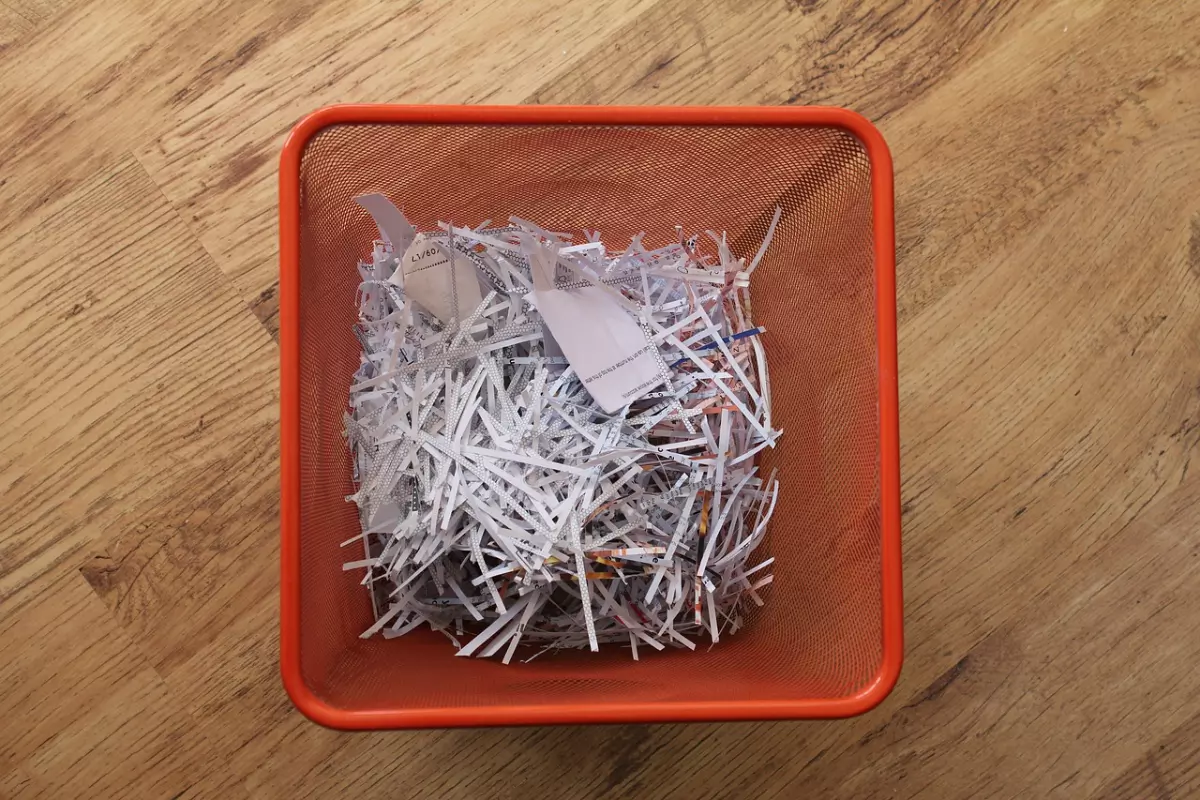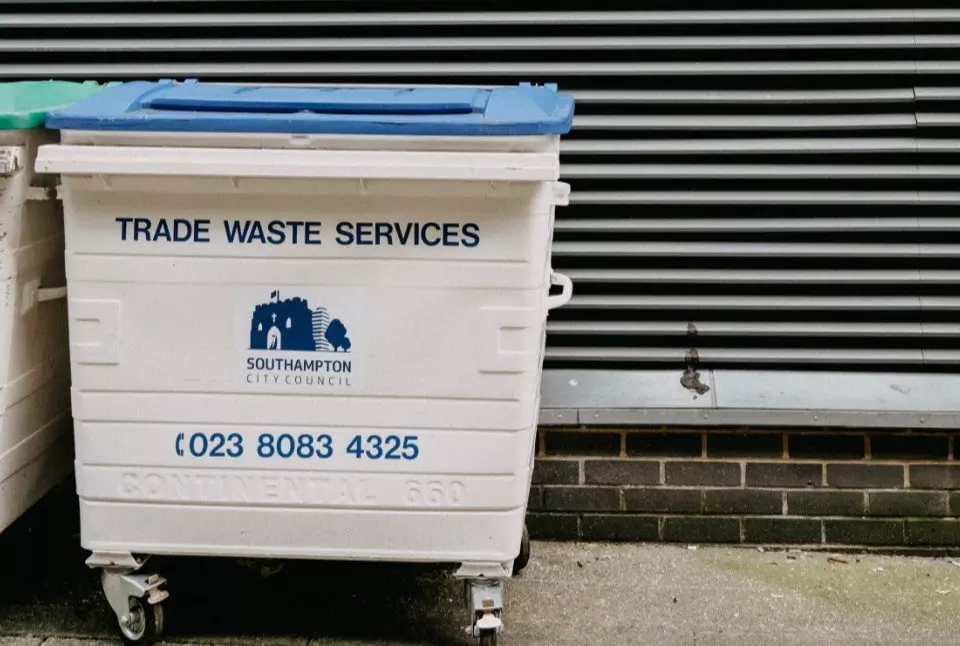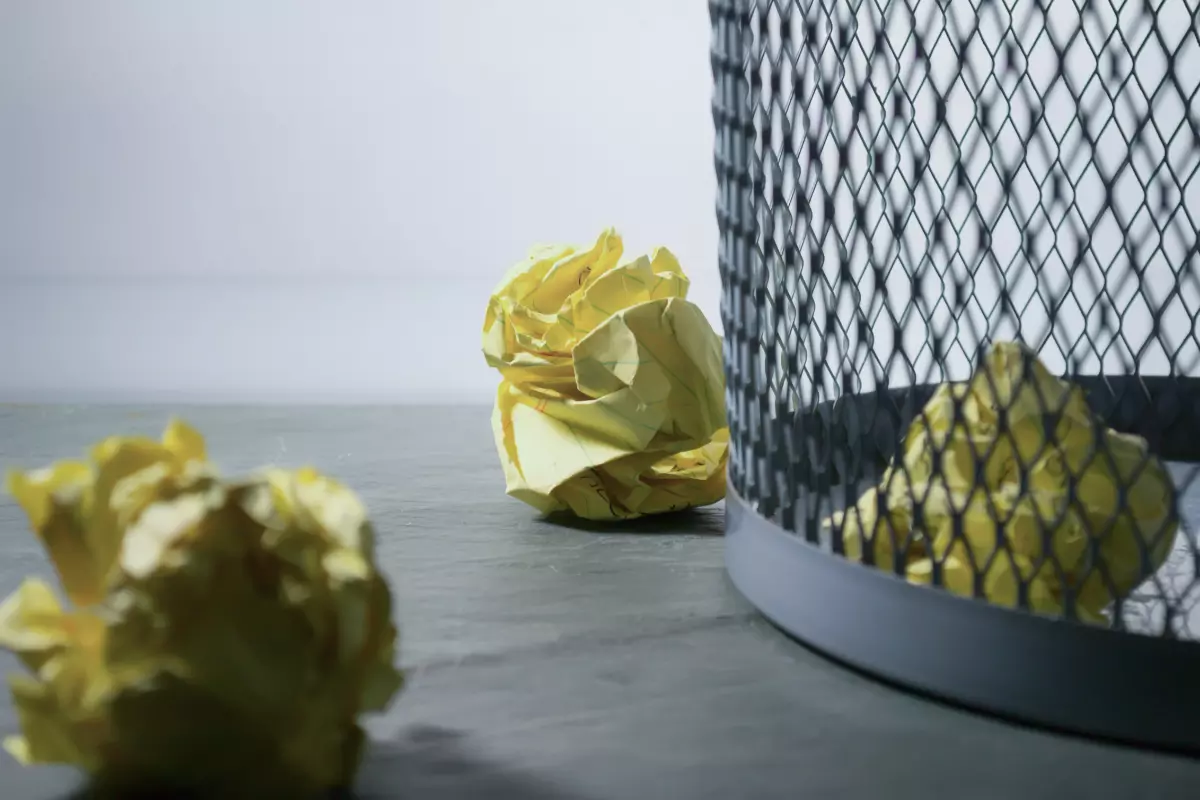If you run a commercial organisation you will want to know: what are the examples of business waste? We look at the types of commercial waste and how to dispose of it.
What Is Commercial Waste?
Commercial waste is the rubbish any company or business creates on its operation site. For example, suppose you run a trading yard, an office, educational premises or any other form of business.
In that case, whatever waste is produced during the operation of your work is considered commercial waste, and you are entirely responsible for it.
Business waste also refers to any rubbish generated in sectors or industries, such as construction, demolition, industry and agriculture. Essentially, any waste items or materials generated through commercial activity must be disposed of appropriately.
This includes packaging, food wrappers, cans, cardboard or paper document waste etc. It is a legal requirement to dispose of this business waste properly and not simply stick them in your domestic rubbish at home.
What Is cONTROLLED wASTE?
Every commercial business owner has a Duty of Care regarding the waste they produce in executing their business activity. This is to protect the local environment from becoming damaged due to the irresponsible disposal of waste materials or items.
Commercial enterprises and businesses can breach this Duty of Care whenever they lose control of the waste they produce or have failed to take steps to prevent this from happening.

This legal responsibility that businesses have to dispose of their waste in an environmentally friendly and socially conscious manner means that any rubbish produced is classed as "controlled waste" and must be dealt with as the law requires.
Contacting your local waste collectors to establish regular collection and safe disposal is the best option for businesses.
These commercial waste removal services can collect all the waste your company produces throughout a specific period, arranging a specific collection day to remove your rubbish.
They will then process the waste and dispose of it in a responsible and legal way that meets all of your and their obligations by law. This is the easiest way for companies to dispose of their waste and won't cost them an arm and a leg.
wHAT iS tRADE wASTE
Trade waste differs slightly from commercial waste in that it encompasses industries or businesses such as shops, factories and tradespeople.

This type of waste can differ from commercial waste, or it can be similar - the two titles are almost interchangeable.
Examples of other businesses that produce trade waste include:
Office
Pubs
Schools
Charities
Essentially, trade waste is anything other than the rubbish generated through domestic living. However, businesses may produce waste similar to domestic waste, such as paper towels, furniture, appliances etc.
Even though these items and materials are similar to domestic waste, the fact that they have been produced by a commercial enterprise or trade centre makes them trade waste.
Further examples of this kind of waste include:
Steel/Aluminium Cans
Paper
Cardboard
Packing Materials
Glass
Electronic Equipment or Appliances
Printer Cartridges
Plastics
Office Furniture
Batteries
Broken Drinking Glasses
Fluorescent Light Tubes
Scrap Metal
Timber
Bricks
Tiles
Concrete
Hazardous Materials (paints, solvents, asbestos)
Types Of Business Waste
Naturally, depending on the business type you own and your business's work, it will produce different waste types. However, some common themes are running through different companies regarding their waste production. Large companies or businesses will naturally produce large quantities of trade waste compared to smaller enterprises.
Additional factors determining the type of waste a company will produce includes the industry that the business is working in.
Businesses such as construction or retail, and the clients the customer has and how they package their products.
The business' waste strategy will also determine how much waste they produce.

For example, more environmentally conscious businesses may have recycle-first policies, cutting down on the amount of waste they dump into landfill sites or run paperless operations and administration.
Here we have provided a brief rundown of the various types of business, trade, commercial and construction waste that companies are known to produce:
General waste includes all the everyday rubbish that businesses produce on their sites which is non-recyclable. For example, this might include laminated paper, used tissues or plastic food packaging.
Every business will produce this kind of rubbish in their day-to-day operations, regardless of the industry or sector they are working in.
As the name suggests, glass waste is the rubbish a company, trade or business produces that is primarily made from glass. Obvious examples of this type of trade waste include glass bottles or drinking glasses, window panes or other waste sheet glass.
Certain types of business, such as hotels and hospitality premises, along with glass manufacturers, are naturally more likely to produce glass waste.
Food waste again is particular to some obvious industries. This waste is classed as any food products that have not been consumed and have to be thrown away.
However, food waste such as bones or any other animal by-product has its own disposal requirements, with tradespeople such as butchers needing an appropriate food waste bin to dispose of bones and other types of food waste.
On the other hand, standard food waste found commonly in food-based enterprises includes peelings, bones and leftovers. Restaurants and catering services are the most likely to produce this type of waste, but they can also be found in most other businesses.
For example, even if you work in an office, if your employees eat their lunches on the business premises, you will need to dispose of any food waste produced appropriately.
Clinical waste is another type of waste that you can pin down to a few small industries or business sectors, but you may be surprised to find that it can be difficult to define what counts as clinical waste.
Clinical waste includes parts or entire bodily tissues, whether human or animal, bodily fluids, excretions, pharmaceutical products, drugs, swabs, bandages, syringes and any other item that could be harmful if not disposed of carefully.
Enterprises that produce this kind of waste include hospitals, care homes, dentists and tattoo studios.
Hazardous waste is classed as any waste produced by a company or business that threatens the environment or public health. There are four main characteristics hazardous waste will have: toxicity, ignitability, corrosivity, or reactivity.
While this waste may sound exotic and specific to industrial waste, you would be surprised to find that cleaning chemicals, batteries, solvents and chlorine are all considered hazardous waste.
Naturally, the industries that typically produce hazardous waste include chemical manufacturers, oil refineries, electroplating businesses and nuclear power sites.
Washroom waste can be found in almost every business across the country, so long as they have toilets for their employees. This type of waste includes tissues, sanitary products and baby nappies.
Again, the most likely industries to produce this type of waste includes hospitality and leisure.
Dry mixed recycling includes rubbish that companies can recycle as it is uncontaminated. For example, dry mixed recycling will include paper mixes, washed aluminium cans, cardboard and plastic bottles.
Many businesses will produce this waste, as it is very similar to general waste, except for being recyclable.
Most businesses will also have separate disposal areas, bins or waste containers for their dry mixed recycling, meaning these materials don't need to be separated on-site and can be immediately sent away to treatment facilities for sorting and recycling.
Why Business Waste is Important to Small Businesses
Business, commercial or trade waste is worth serious consideration by any company or business, given that it is your legal responsibility to dispose of that waste effectively and safely.
No matter the size of your business, you will need to ensure that all the waste your company produces is stored, sorted and disposed of appropriately.
There are serious consequences for businesses that fall short of these obligations. Under the Environment Protection Act of 1990, large and small business owners can be charged in magistrates or crown court with unlimited fines if they dispose of their waste illegally.
In serious cases, business owners can face prison sentences for improper disposal of their commercial waste.
Your Duty of Care to dispose of your waste responsibly is outlined in Section 34 of the Environment Protection Act, which states:
You must prevent the waste from damaging anyone on your site or the surrounding environment and protect overall human health.
You must contain and control all of the waste you produce in the best way that you can.
Suppose you transport your waste through an outsourced waste management company, commercial waste collection service, or private waste carrier. In that case, you must provide them with waste transfer notes as part of your waste audit.
You must store your waste correctly and securely.

You must ensure that whoever you elect to collect and dispose of your waste is fully accredited with a waste collection providers license.
Section 34 also suggests keeping your waste to a minimum as much as possible by using the Prevent, Re-use, Recycle and Recover waste management hierarchy.
Get in touch today if you have any commercial waste collection that needs collecting and disposed of correctly in Maidstone and Kent. Our experience and professionalism can help alleviate any stress or concerns you have concerning wastage.


